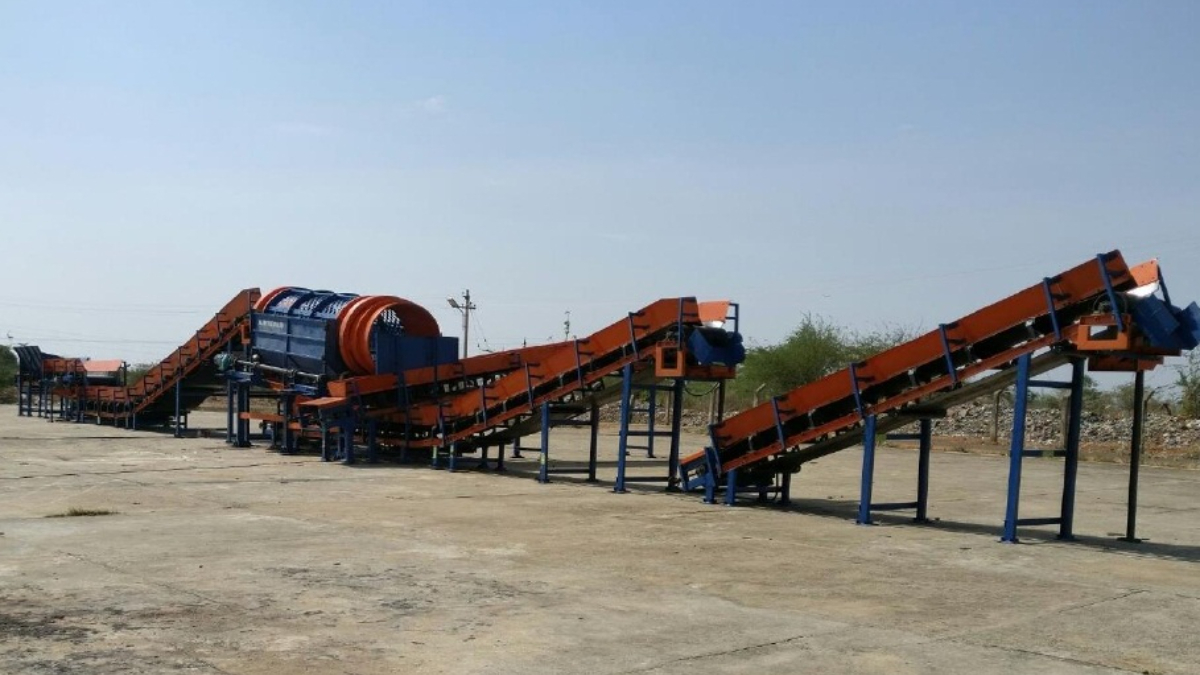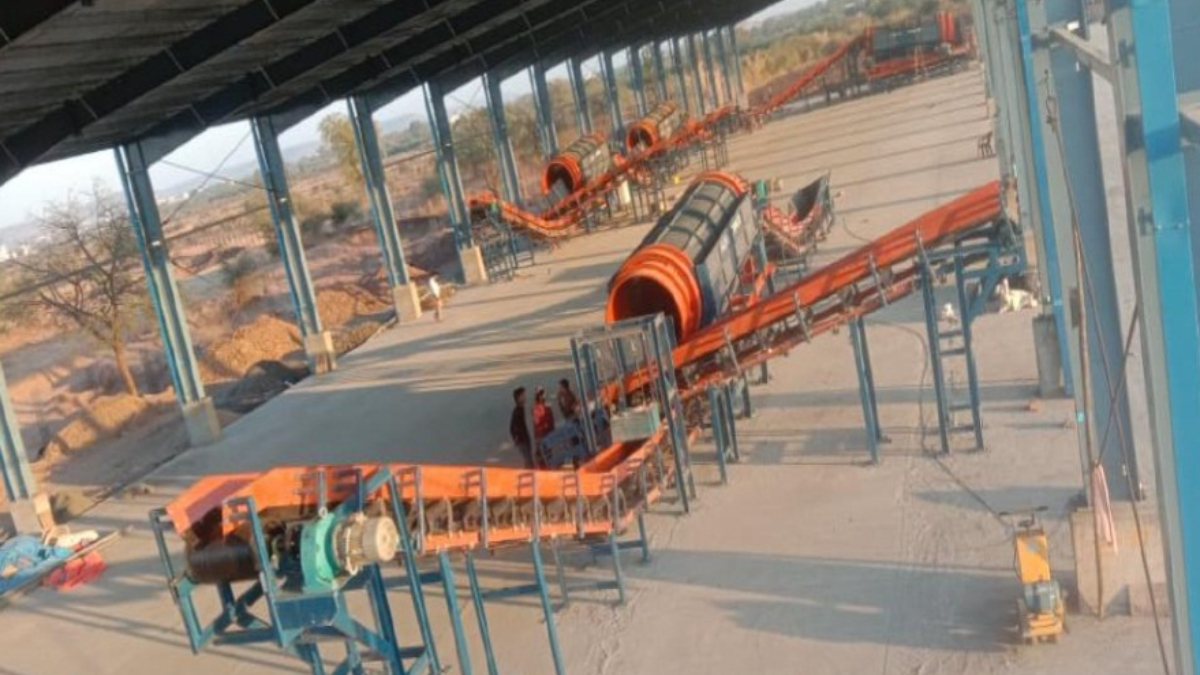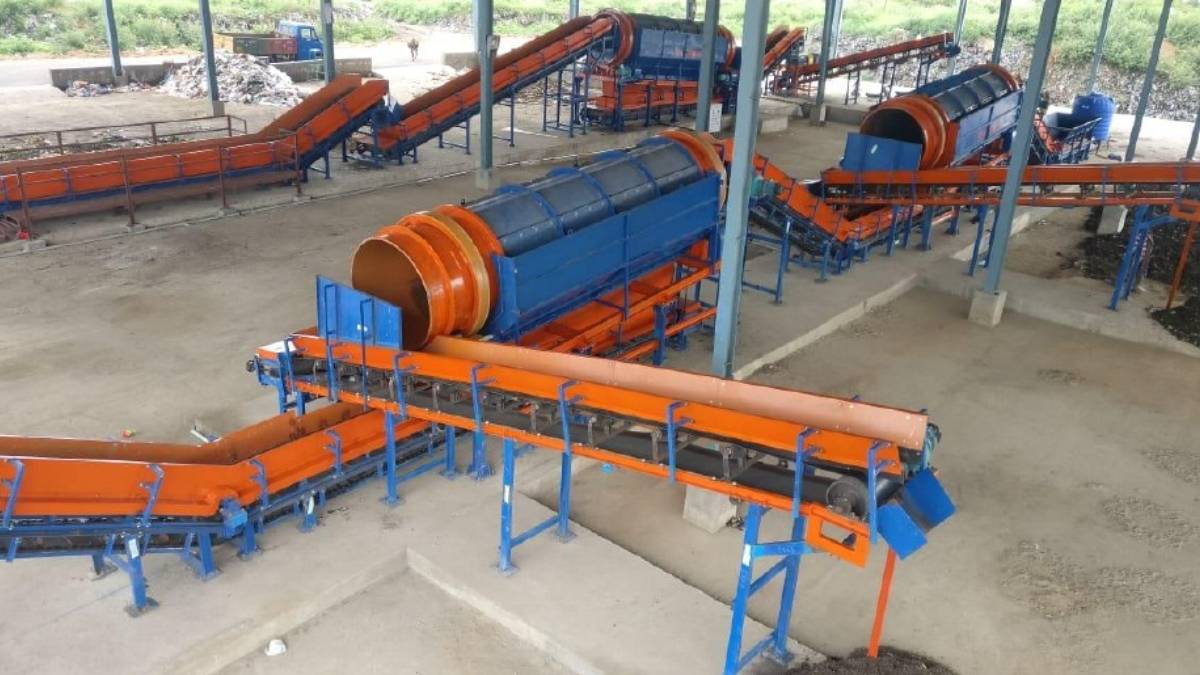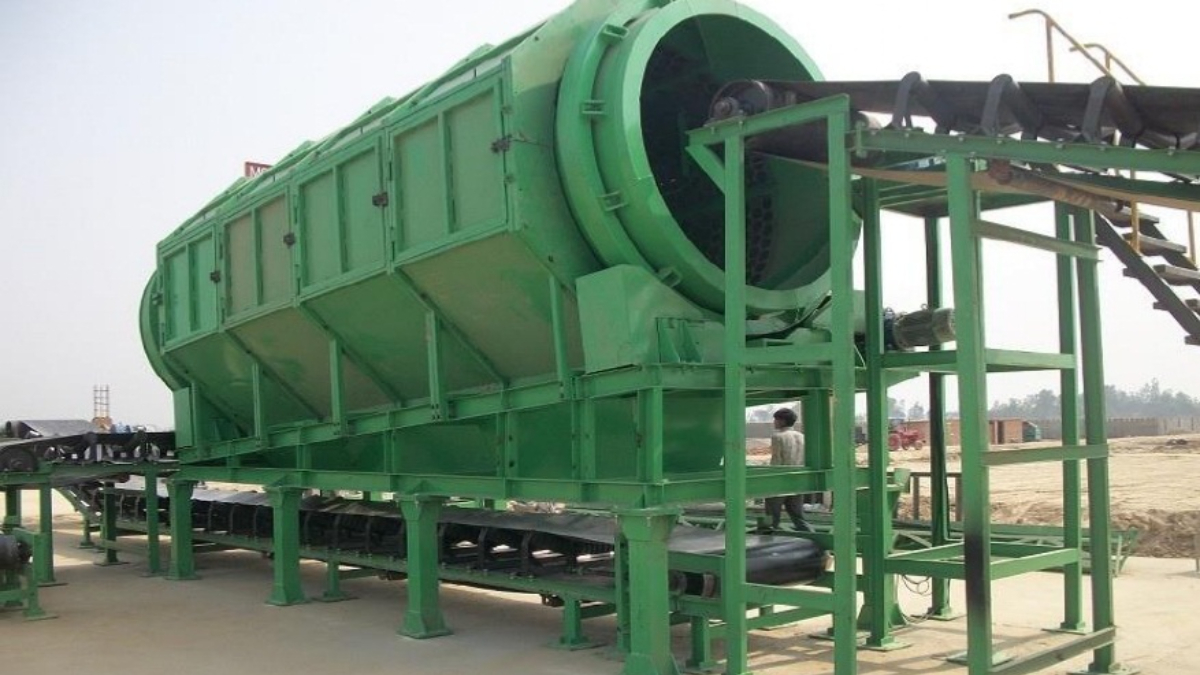Municipal solid waste (MSW) is the waste generated by the public. Without significant recycling activity, it predominantly includes food waste, market waste, yard waste, plastiC, product packing materials and other miscellaneous solid waste from residential, commercial, institutional and industrial sources. Municipal waste needs to be efficiently handled to avoid serious health, hazards to public and also generate revenue out of waste.
Composting is nature's way of recycling. A controlled process hastens this natural decomposition of organics. The final product is compost which has an earthy aroma. Composting significantly reduces the quantity of waste being diverted into landfills.
Alfa-Therm Limited is a leading manufacturer offering the latest modern mechanized plants for MSW processing that process and converts organic matter into compost with capacities of 50 tons/day up to 2000 tons/day based on windrows composting.
The process involves pre-processing yard/windrows/shed management, processing, and refinement before final packing of high-quality compost. The plant incorporates apron feed regulate conveyor, feeding conveyors, tromell screens, bucket elevators, Aerobic gravity separators, ferrous and non-ferrous separators, drag chain systems, destoners, and other automation equipment to reduce manual handling and increase productivity. Our state-of-the-art Manufacturing Plant coupled with our strong R&D wing continuously innovates new designs and equipment as per world-class standards. We take pride in various Alfa Therm Compost Plants working all across the country on electrical and hydraulic modules. Our dynamic teams focus their energy and resources to offer the very best solutions to customer needs.
BENEFITS OF COMPOSTING
- 1. Composting adds organic materials to soils making these soils more productive and optimal for plant vigor.
- 2. Composting improves aeration to the root zone of plants.
- 3. Composting helps sandy soils retain moisture and builds soil structure allowing plants to utilize natural nutrients in soil. This helps to reduce water consumption.
- 4. In hard or clay soils, compost improves drainage.
- 5. Compost helps reduce topsoil erosion and minimizes the need for chemical fertilizer.
- 6. Machines used for managing MSW are also referred to as RDF plants, waste segregation plants, etc. Alfa Therm has the expertise in establishing a large-scale MSW compost plant. Offering various technical solutions, our compost plant is designed keeping in mind the need of rural as well as urban areas. Every day our advanced machine helps in recycling tons of waste that are segregated and converted to compost, refused derived fuel (RDF), recyclables.
WHY COMPOST ?
Organic waste constitutes up to 50% of what people throw away in the trash. While it is true that you cannot compost all of it, composting can crucially cut down on the overall trash. It is great for the environment and the community. Here are some other good reasons highlighting the advantages of composting:
1. COMPOSTING PROMOTES HEALTHY PLANT GROWTH
Adding compost to the soil makes it healthy and more ideal for plant growth. With more organic matter, the soil can retain water and air in a better way. Overall, it benefits the entire ecosystem.
AEROBIC COMPOST:
- 1. Helps in making clay soil airier.
- 2. Increases organic matter in soil and helps plant absorbs some extra nutrients.
- 3. It May even help control soil erosion.
- 4. Helps sandy soil retain water.
- 5. Helps in maintaining pH levels in the soil.
2. COMPOSTING REDUCES THE NEED FOR PESTICIDES AND OTHER ARTIFICIAL FERTILIZERS
Compost enriches the soil and thus reduces the need for synthetic fertilizers. This is great as it reduces your cost as well as offers all things good to the soil. Furthermore, compost contains a variety of nutrients that alters soil structure and help them retain nutrients effectively over some time.
3. COMPOSTING COULD SAVE MONEY
Organic waste constitutes the majority of the waste that ends up in our trash. If we opt for composting it can save a huge amount of waste being sent to landfills which in turn saves the price we pay for its disposal.
4. COMPOSTING CAN HELP IN REDUCING EROSION
By providing nutrient value to the soil, composting can help reduce erosion by improving the soi's ability to hold water.
5. LASTLY, COMPOSTING IS A SATISFYING ACTIVITY
When you compost, you become more aware of the trash you generate in general.
WHAT ARE THE BASIC COMPOSTING INGREDIENTS:
Greens and browns are the two main types of ingredients in compost. Greens are rich in nitrogen and include materials like fruit & veggie scraps, eggshells, coffee grounds & filters, fresh grass clippings while browns are rich in carbon and include materials like dry leaves, branches, twigs, shredded newspaper, paper towels, cardboard, and napkins.
WHAT IS RDF
Refused derived fuel (RDF) is produced from different types of waste sorted out of MSW. RDF is a renewable energy source that ensures waste is put to good use and not simply thrown into a landfill. RDF has many dimensions and can be further categorized into SRF (Solid Recovered Fuels), TDF (Tyre Derived Fuels), and AF (Alternative Fuels). The various combustible components like paper, labels, non-recyclable plastics are usually taken from commercial or industrial sites. The practice of converting these wastes into RDF has huge benefits for our environment.
RDF can be used to process a variety of materials and hence there are different techniques to prepare materials that can be used as a substituent for fossil fuel. The common process steps to extract RDF from MSW includes:
- 1. Shredding
- 2. Extraction of fine materials
- 3. Preparation of RDF fraction
- 4. Coarse shredding
- 5. Final RDF quality
In the Alfa Therm RDF plant, various mixed or sorted waste materials are shredded, screened, and separated to produce RDF. As mentioned above, the process starts with size screening and then extraction of fine particles, and then final post shredding of the high-quality RDF fraction to be used as fuel. Our process is designed and customized according to the customer's requirement and is scalable to support low to high throughput. The RDF plants manufactured by us are up to 600 TPD Capacity. Our RDF plants are fully automatic using high technology equipment. RDF is an environment-friendly option and is a viable alternative to landfills. We at Alfa Therm encourage such alternative showpopupEnq as it plays a vital role in our environment.
WHAT IS AN MRF PLANT
An MRF plant, or a materials recovery facility plant, is essentially used to recover ferrous materials, aluminum, HDPE, PET, glass, and mixed paper. An MRF plant is a key and crucial component of important commercial and residential single-stream recycling programs, that use an amalgamation and combination of sophisticated equipment and manual labor to first separate and then densify materials before they are shipped to recyclers of the recovered materials. Alpha Therm's MRF plants are designed to efficiently and effectively prepare materials for recycling and employ some of the most advanced technologies to make the process faster, smoother, and efficient.
IMPORTANCE OF A LEGACY WASTE PLANT
A Legacy Waste Plant is one of the most important ways to manage waste management in a country like India since it deals with waste that has been collected and kept in barren or isolated land dedicated to a landfill. A legacy waste plant is crucial for dealing with accumulated waste as this waste can be extremely dangerous, and serves as a breeding ground for pathogens and leachate, which can even lead to water contamination if not dealt with promptly. Alfa Therm's Legacy Waste Plants have been designed and manufactured to reduce the volume of organic waste into high volume, and the compact design of the Legacy Waste Plant enables easy operation, low maintenance requirements, and impressive cost-effectiveness while also dealing with legacy waste, which can cause severe environmental damage if not dealt with adequately.








